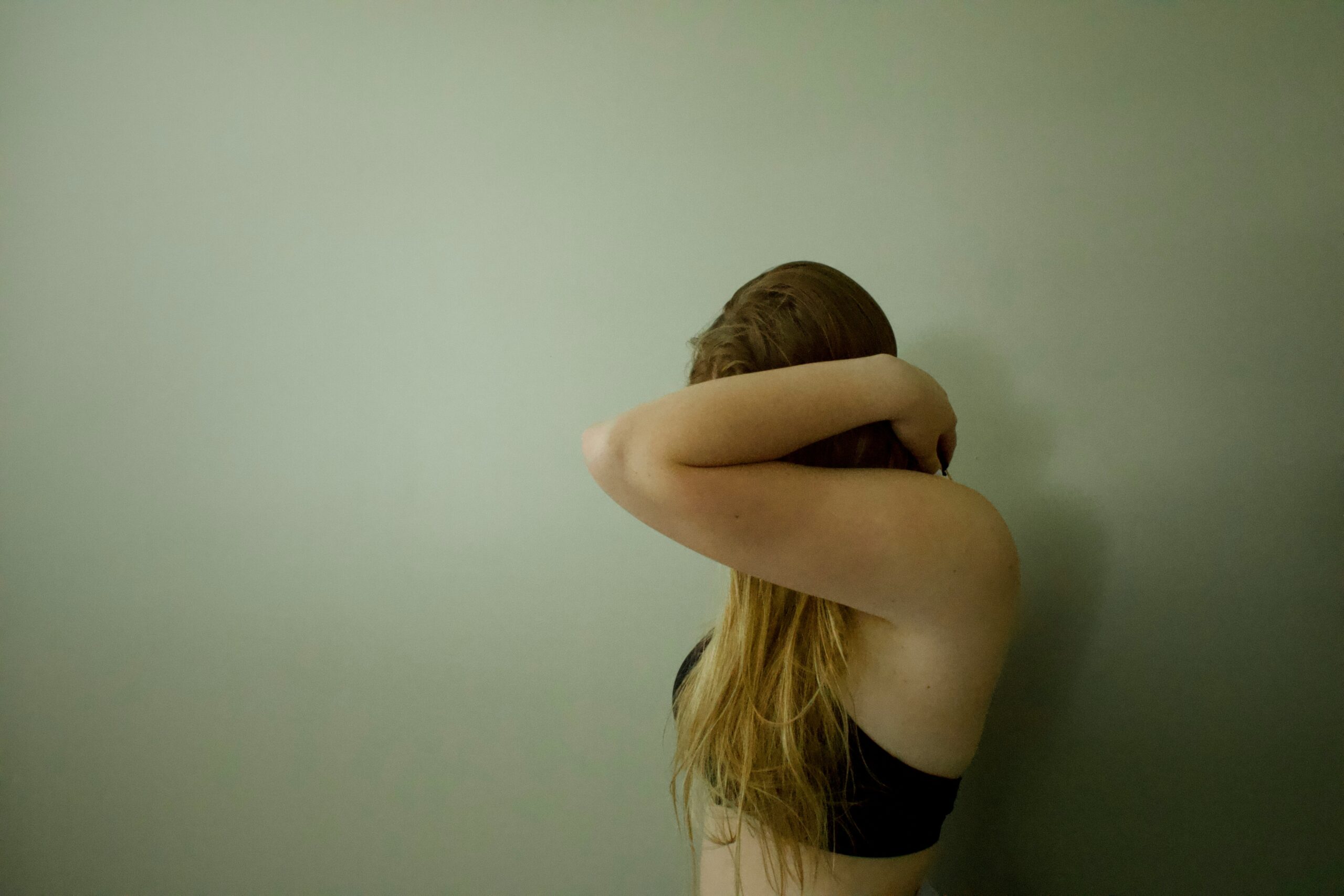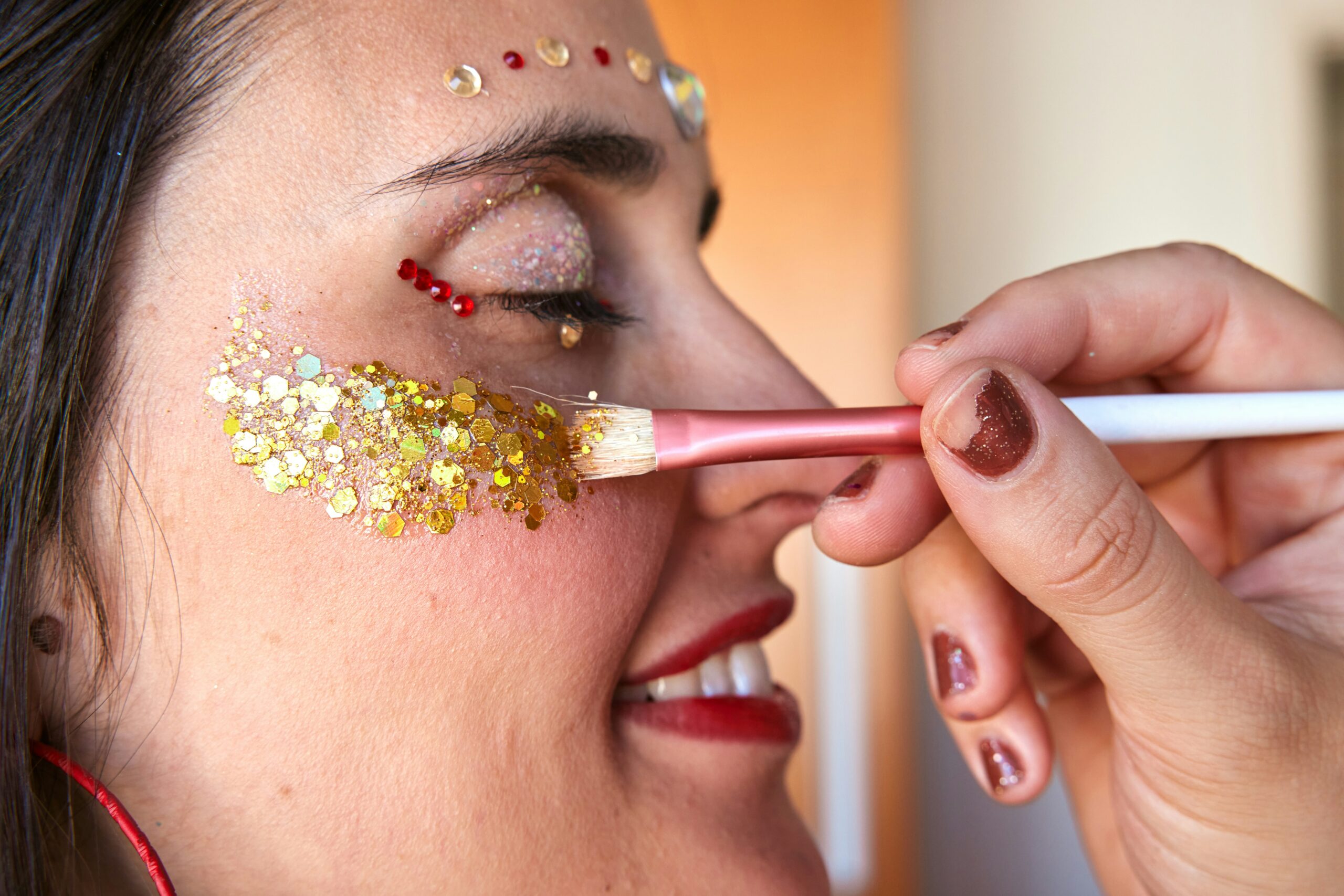Like most mothers, I remember exactly where I was when I found out I was pregnant with my first daughter. Standing in the bathroom after battling nausea for several days, I picked up the pregnancy test and saw the results staring right back at me. The “+” sign was clear as day. I immediately snapped a picture on my phone and ran downstairs to tell my husband.
“I’m pregnant!” I shouted. He smiled and kissed my forehead. It was perfect.
My pregnancy flew by. Like many women who have a history of anxiety, I felt less anxious during pregnancy. To help cope, I gave myself permission to put many of my type-A behaviors on the back burner. I tried my best to embrace slowing down and appreciate the experience of growing life.
As an avid reader and student, I loved reading all of the books on pregnancy, motherhood, and caring for a newborn. I took infant care, birthing, and sleep training courses. I dove headfirst into all of the information I could find, trying to soak up everything in those nine short months. All of the information helped me feel empowered. I felt confident and strong—plus I had my psychology training to fall back on.
At this point, I had been practicing as a psychologist for a few years, and had a good theoretical understanding of postpartum depression and anxiety. I knew what symptoms to look out for. I understood how hormonal, genetic and environmental factors all interacted together to predict whether a woman would experience it. I also knew that I was at increased risk of PPD because of my history of anxiety, but I had treated many clients for depression and anxiety, so I felt armed with knowledge.
I might be at greater risk, I thought, but I could get ahead of it. I was going to have a blissful transition to motherhood.
When I had my daughter, I soon learned that daydreaming about motherhood and actually being a mother were two completely different experiences. Within a couple of days, the reality of this new role set in and I felt myself experiencing emotions that I had never felt before.
I loved my daughter, but I cried for what felt like no reason.
I was exhausted like nothing I had ever felt before.
Is this motherhood bliss? I asked myself. Why would so many women do this over and over again, I wondered.
I remember googling “When do you feel like yourself again after having a baby.” Google told me that it would take 12 weeks and then I would experience a radical shift. You just have to make it to 12 weeks, I kept repeating to myself, and things will get easier. But this shift never came.
I also realized that taking care of a newborn was nothing like what they had taught me in the classes that I took. They showed us how to change a diaper and swaddle a baby, but didn’t say anything about reflux, the stresses of breastfeeding, or the fact that a baby doesn’t necessarily just fall asleep on their own.
When I didn’t intuitively know how to soothe my baby when she cried, detect her hunger cues, or get her on a schedule, I felt completely defective. Do all moms know how to do this? Is it just me that doesn’t get it? I didn’t spend a lot of time taking care of babies before I had my own, so maybe that was the problem. Maybe I just didn’t have the experience.
When I didn’t know the answers to these questions, I went where most people go for this information. I turned to Instagram. But social media sent me on a dangerous spiral. I came across tons, and I mean tons, of information on everything you need to know about caring for a baby.
There was a solution for every problem—some costly, some not. I tried gripe water, oatmeal, every brand of formula, bassinets that rocked, and everything that you could imagine. I was desperate for anything that would help me soothe my baby, get her to sleep through the night, and give me that sense of confidence that I felt throughout my pregnancy.
On social media, I also came across so many mothers who seemed to have it all together. They wore nice clothes, had their hair done and took their babies out shopping and for coffee. Meanwhile, I could barely brush my teeth and answer a text message. These women had something that I didn’t, I told myself.
Underlying the sadness, anxiety, isolation and guilt was a sense that I was also defective as a psychologist. We all know that mental health professionals can also struggle emotionally, but saying it and living it are two very different things. I saw all of these other mothers without a background in mental health thriving.
I felt immense shame that I was having a difficult time. Like so many mothers, that shame kept me silent and suffering for a long time. In all honesty, it took me years to admit that I had postpartum depression. I wish I could say that I instantly noticed the signs and got help, but that wasn’t my experience. I tried to deny it, push it away, and wish that it would disappear on its own.
But the problem with postpartum depression is that it rarely goes away on its own. It may go dormant for a little while, but it comes back, sometimes disguising itself in different ways.
As a psychologist, I don’t think I need to experience every mental health disorder or symptom to help my clients. But when it comes to PPD, I do believe that my own experience has helped me to be a better therapist. I can understand how guilt, shame and fear can keep you from seeking help and perpetuate ongoing suffering. Each time I see a client struggling with these same feelings, I remember what it was like to be in the same position.
If I could talk to my postpartum self I would tell her that she is not weak, defective or incapable. I would let her know that countless women before and countless after will experience these very same feelings. I would tell her that if she was experiencing a medical condition she would seek treatment, and this is no different. Like a broken bone, it may eventually heal on its own without care, but it will be a grueling healing journey, one possibly filled with long-term complications.
If you are suffering from postpartum depression or anxiety, know that you are not alone. Experts believe that one in five women experience PPD and PPA, but I think the actual numbers are higher. These statistics don’t account for all of the women who go undiagnosed and untreated. Many women, like myself, hide what they are feeling because they believe they need to be strong and keep up appearances. This mentality unfortunately perpetuates the problem. Pretending that postpartum depression doesn’t exist doesn’t make it go away. It makes it worse.
Moms, please know that having postpartum depression does not mean that you are a bad mother. You are not weak, defective, or incapable. You are dealing with a very real mental health condition. Treatment can help tremendously. Don’t try to ignore it or hope it will go away on its own. Get the help that you need and deserve.
If I could go back and tell my early postpartum self, I would say the same thing I say to all moms now: You are strong, you are brave, and you will overcome this.
Author
-

Dr. Emily Guarnotta is a licensed psychologist and perinatal mental health specialist (PMH-C). She has works with clients experiencing a range of maternal mental health concerns, including infertility, postpartum depression and anxiety, and miscarriage. She is also the co-founder of Phoenix Health, an online practice that specializes in therapy for maternal mental health conditions. When she's not working, you can find her enjoying time with her family, traveling, and staying active.
View all posts
Follow Dr. Guarnotta on Instagram and visit her website




